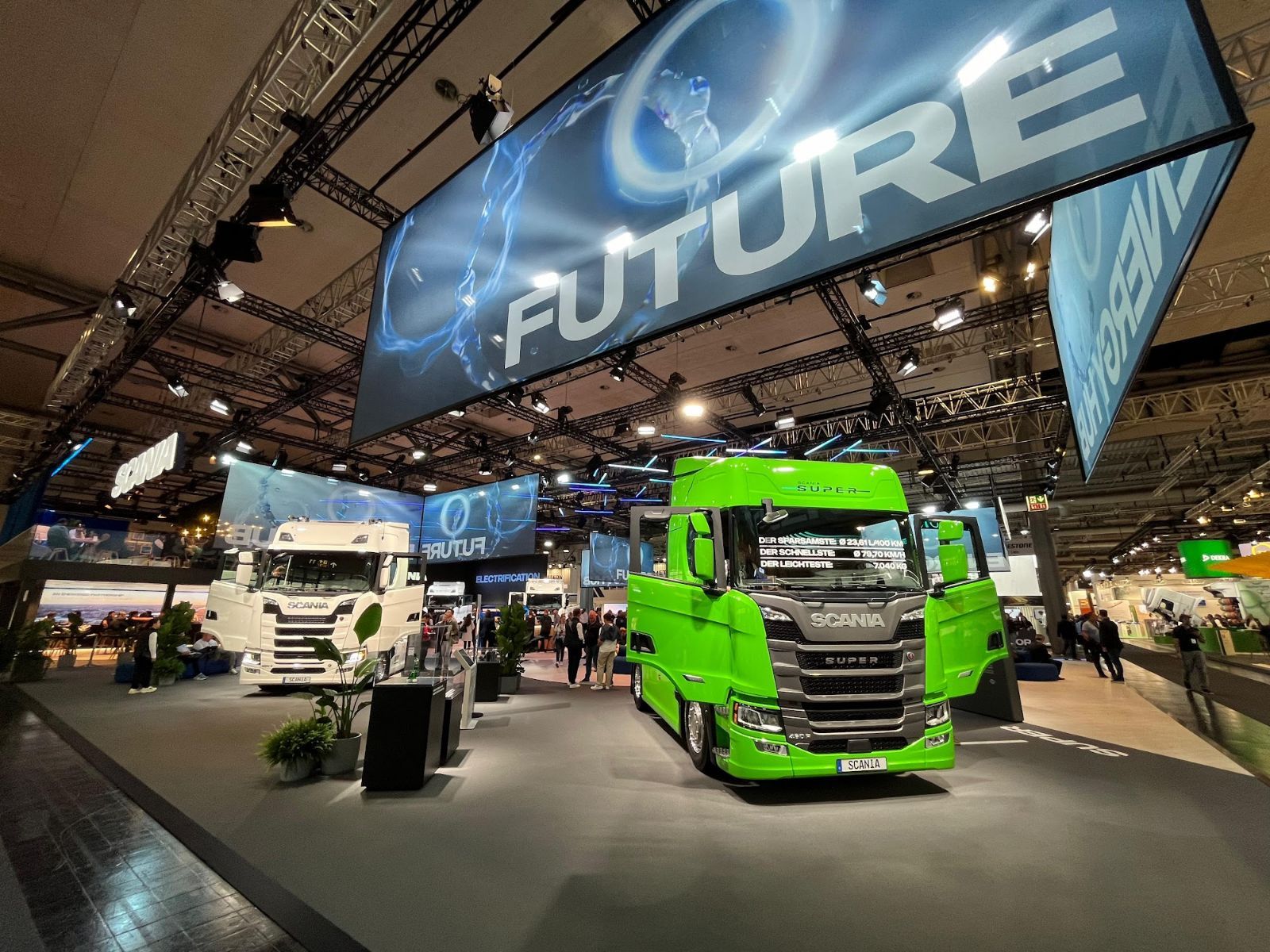At IAA Transportation in Hanover, 17–22 September, Scania showcases its versatile range of electrified and biofuel heavy trucks, including a brand-new battery electric tractor. Scania’s electric vehicle range now encompasses vehicles for nearly all applications, also featuring timber trucks.

“Customers can now benefit from greener options without adversely affecting normal operations and thereby help set the stage for a fossil-free future of heavy transport,” says President and CEO Christian Levin, Scania.
Scania now stands ready to deliver outstanding electric trucks with the greatest loading capacity, the fastest charging, and the and the best driving experience on the market.
But not only that: Thanks to Scania’s modular approach it offers a great variety of electric machines and options regarding battery packs, chassis, power take-off solutions, cab variants and axle configurations.
Scania can hereby deliver the right solution for each individual customer, including three different electric machines in nine power output levels. This makes it possible to tailor the vehicle specification to allow for maximum payload.
“Meanwhile, electrified transport depends on a whole ecosystem. To be the best partner to our customers we must offer more than vehicles. Additionally, our support includes charging infrastructure, battery performance monitoring, dynamic route planning, financing, and many other services. Over the past two years, we’ve worked hard to get all of that in place,” says Levin.
In parallel, Scania has pioneered biofuel trucks. On display at IAA, will be the unrivalled Scania Super 460 R, the latest winner of the German Green Truck Award. In biogas, Scania’s new 13-litre truck provides customers with a choice of compressed and liquified biogas, the latter with ranges up to 1,800 kilometres.
No Scania appearance would be complete without its legendary V8 and visitors at IAA will no doubt relish the Scania R 660, built for the toughest conditions.
All of these trucks – as well as new efficiency enhancing and cost-saving services – take centre stage as the entire industry stands at the threshold of transitioning to sustainable transport.